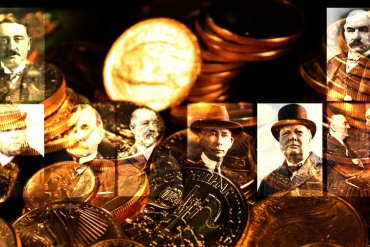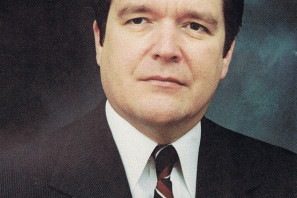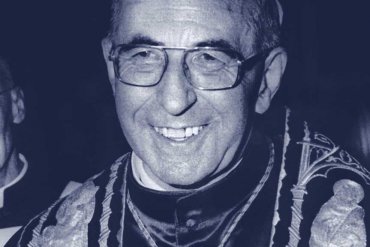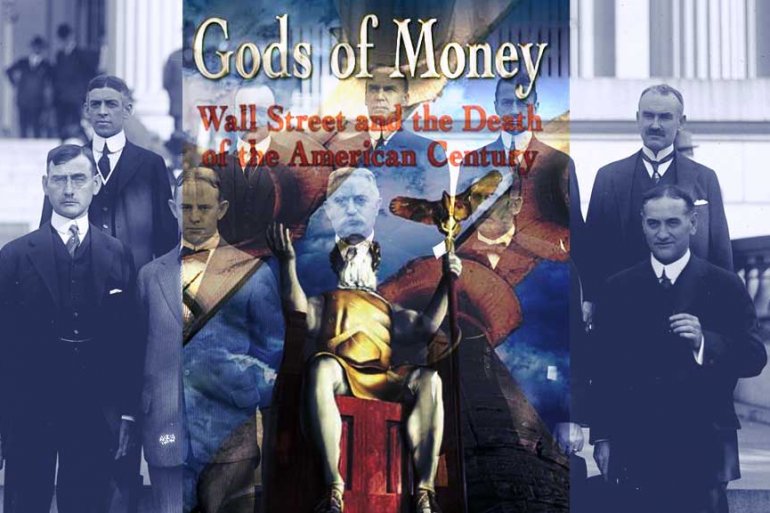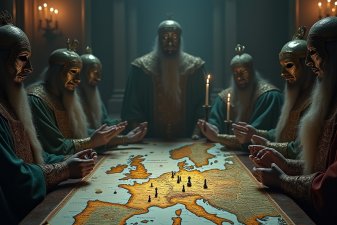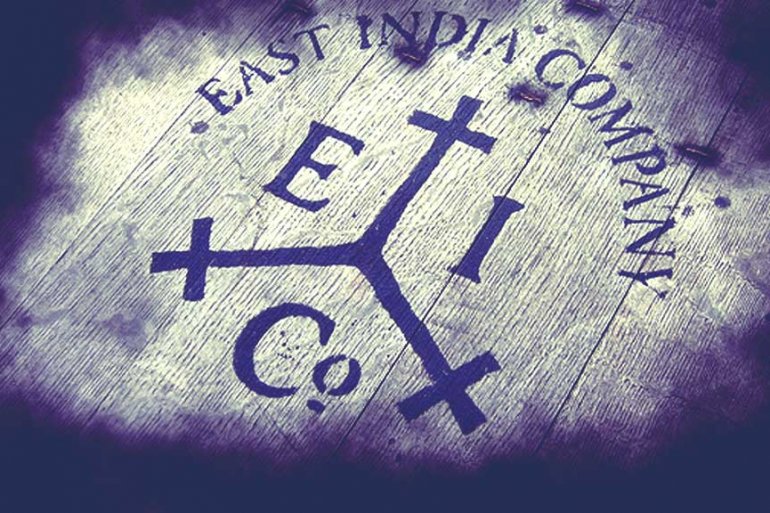The business of banking in Europe in the fourteenth century function was to evaluate, exchange, and safeguard people’s coins. In the beginning, there were notable examples of totally honest banks which operated with remarkable efficiency considering the vast variety of coinage they handled. Honest banks These first banks also issued paper receipts which were so dependable they freely circulated as money and cheated no one in the process. As these...
In the list of Conspiracies the case of Lawrence Patton “Larry” McDonald fits perfectly. Is it a conspiracy theory as many tried to ridicule his claims or is it indeed, a fact? In any case the coincidences are weird! Lawrence Patton “Larry” McDonald (April 1, 1935 – September 1, 1983) was an American politician and a member of the United States House of Representatives, representing Georgia’s 7th congressional district as...
If you’re interested in the dark, hidden backstories, reading Stephen Zarlenga’s book – The Lost Science of Money: The Mythology of Money, The Story of Power … is a perfect good start! And for those who can read between the lines also Dr. Hjalmar Schacht, his 1967 book The Magic of Money is a real eye-opener. Original German version: Magie Des Geldes: Schwund Oder Bestand Der Mark http://amzn.to/2y5msOO When World War I ended and the Allies imposed war reparations on […]...
For those who are reading the Maier Files and guessing that the story of Otto Maier, Oskar Gross and their struggle with the occulted Criminal Banking Cartel is just a fancy tale, think again. The goal is indeed control. They want all of us enslaved to debt, they want all of our governments enslaved to debt, and they want all of our politicians addicted to the huge financial contributions that...
The death of Pope John Paul I, Conspiracy or not? Even in Italy, land of the conspiracy, no plot comes more entangled than the death of Pope John Paul I. When white smoke puffed above the Vatican on 26 August 1978 to signal the election of Albino Luciani to the papacy no one was more surprised than Luciani himself. A Vatican low-profiler, Luciani was a deeply modest man, who refused...
In 1913, Minnesota Congressman Charles August Lindbergh Sr., father of the famed aviator, wrote Banking, Currency, and the Money Trust, in which he accurately described the political agenda of the Wall Street international bankers who were shaping the creation of a new central bank and with it, control over the nation’s economy. Lindbergh As a Republican member of the US Congress Lindbergh wrote exposing the secret machinations of powerful Wall Street financial interests, their efforts to sneak through a piece […]...
September 2011 Hugo Chávez, resplendent in crisply pressed fatigues and paratrooper boots with red shoelaces, had a very special guest. Meeting him that mid-September day in Caracas was the world’s most powerful banker, who had lent Chávez’s government at least $40 billion over four years, or about $1,400 for every man, woman, and child in Venezuela. The guest, stooped and looking older than his 66 years, drank chrysanthemum tea, staring...
Why does it appear on the surface that parties seem to be against each other when all along they are connected? – Think about it! (R. Dietrich) Without the existence of the secret societies, our history would have been totally different. The history of mankind is like a vast jigsaw puzzle. One must first lay down all pieces down in the correct order before the real bigger picture reveals itself....
“History is bunk” is a cliché with which we are all familiar. Having studied usury and fractional reserve banking intently and knowing who was behind it all, when Henry Ford uttered those famous words in 1916, what he really meant to say is that history is untrustworthy. The second factor is that history is full of omissions, which Ezra Pound warned students of the University of Wisconsin in a paper he wrote for them in the spring of 1935. Finally, […]...
Throughout history, the true movers and shakers of world events have often remained shrouded in mystery, their influence concealed behind the facades of nations, ideologies, and economic systems. Among these hidden forces, few have wielded as much covert power as the Venetian oligarchy, a financial aristocracy that, though rarely acknowledged, has played a pivotal role in shaping the modern world. The story of Venice is not just about a city-state...
Alexander Del Mar disclosed the “monetary secret of the ages“. For thousands of years this mechanism was a great source of power to whoever held it. Elements of the Roman establishment drew great strength from their control over it, until its effects helped bring down the Roman empire from within. Venice’s profits from it helped spark the Renaissance. It was quitely used for centuries by Jewish merchants getting transplanted from...
In 1899 Alexander Del Mar stated in his book “Barbara Villiers or A history of Monetary Crimes”, this: FROM the remotest time to the seventeenth century of our era, the right to coin money and to regulate its value (by giving it denominations, a belief of worth) and by limiting or increasing the quantity of it in circulation, was the exclusive privilege of the State. In 1604, in the celebrated case of the Mixed Moneys,’ this privilege was affirmed under […]...

